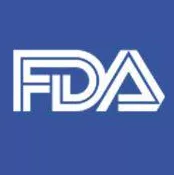FDA to Help Produce Farmers and Processors with FSMA Compliance

Source: FDA
Fruits and vegetables are a key part of a healthy diet. But because of the way produce is grown, handled, and consumed—often raw—it can become contaminated with foodborne pathogens that may make consumers sick. Farmers understand the importance of food safety when they grow their crops. So did Congress when it passed the FDA Food Safety Modernization Act (FSMA). This law, for the first time, charged FDA with establishing science-based standards for the safe production and harvesting of produce.
The resulting Produce Safety rule requires domestic and foreign farms to put preventive measures in place during growing, harvesting, packing, and holding of their fruits and vegetables. The goal is to protect these products from contamination. Another FSMA rule, Current Good Manufacturing Practice, Hazard Analysis, and Risk-Based Preventive Controls for Human Food (the Preventive Controls rule), requires food facilities, such as fresh-cut produce processing plants that prepare bagged salad mixes or fruit salads, to have a food safety plan in place. These plans must include an analysis of hazards, and risk-based preventive controls to minimize or prevent those hazards. Prevention is the central aim of FSMA.
FDA understands that produce safety begins on the farm, but it doesn’t stop there. Everyone in the supply chain, from farm to table and in between, has an important role to play in food safety. Compliance by the produce industry with FSMA’s preventive controls is critical to achieving the public health benefits envisioned by the new law. And FDA is committed to providing training and other support to farmers and produce processors to help achieve that goal.
Toward assisting farmers and processors in achieving these goals, today FDA is releasing two new, draft guidance documents, one of which will help farmers better understand the range of steps they can take to comply with the Produce Safety rule. The other will help processors better understand the relevant provisions of the Preventive Controls rule for fresh-cut produce that apply to their practices.
To accommodate growing practices that vary by region and commodity, flexibility was built into the Produce Safety rule. That flexibility is reflected in the new draft guidance document. The draft guidance for farmers, “Standards for the Growing, Harvesting, Packing, and Holding of Produce for Human Consumption: Guidance for Industry,” gives examples of possible approaches to comply with the Produce Safety rule to demonstrate how the rule might be implemented on different kinds of produce farms. It’s important to recognize that not every scenario is covered in the draft guidance, and farmers can always use an alternate approach as long as it satisfies the requirements of the Produce Safety rule. But farmers can use the draft guidance as a guide to help evaluate their own on-farm practices.
As FDA continue to implement FSMA, they recognize that one of the keys to success is stakeholder awareness, understanding and compliance with the new standards. To that end, FDA has also published “At-A-Glance” overviews of each chapter in the draft Produce Safety rule guidance. These overviews highlight the key points as well as a glossary of the key terms. We’re also announcing that we’ll hold four public meetings around the country to introduce and get feedback on the draft Produce Safety rule guidance. Stakeholders will have the opportunity to discuss food safety practices with FDA experts. We’ll announce the dates and locations of these meetings soon via a notice in the Federal Register.
The second draft guidance document released [today], “Guide to Minimize Food Safety Hazards of Fresh-cut Produce,” discusses how fresh-cut produce processors may comply with recently modernized requirements for current good manufacturing practices (CGMP) and with new requirements for hazard analysis and risk-based preventive controls. Fresh-cut fruits and vegetables are those that have been physically altered (e.g., chopped, diced, peeled, shredded, sliced, etc.) after being harvested without additional processing, such as cooking, that could kill potentially dangerous bacteria. This draft guidance, when finalized, will replace the 2008 guidance, “Guide to Minimize Microbial Food Hazards of Fresh-cut Fruits and Vegetables.” The aim is to give producers more up-to-date guidance.
Looking for quick answers on food safety topics?
Try Ask FSM, our new smart AI search tool.
Ask FSM →
Stakeholder input and feedback has been a critical part of the FSMA implementation process. And we’re committed to hearing all perspectives. FDA's aim is to ensure that the guidance they put in place will help industry comply with the new food safety standards and achieve the goal of producing safer produce.
Public comments will help us ensure that the recommendations contained within the two new draft guidance documents are effective and practical. Although you can comment on the draft guidances at any time, you should submit your comments by April 22, 2019, to ensure that FDA considers your comments before they begin work on the final versions of the guidances. FDA remains committed to helping ensure that fruits and vegetables—whether whole or prepared as fresh-cut produce—are safe for consumers. This starts with helping farmers and fresh-cut produce processors, at home and abroad, meet FSMA’s food safety standards. We’ll continue to collaborate with stakeholders as the agency implements FSMA to ensure that our nation has one of the safest food supplies in the world.
FDA, an agency within the U.S. Department of Health and Human Services, protects the public health by assuring the safety, effectiveness, and security of human and veterinary drugs, vaccines and other biological products for human use, and medical devices. The agency also is responsible for the safety and security of our nation’s food supply, cosmetics, dietary supplements, products that give off electronic radiation, and for regulating tobacco products.






.webp?t=1721343192)